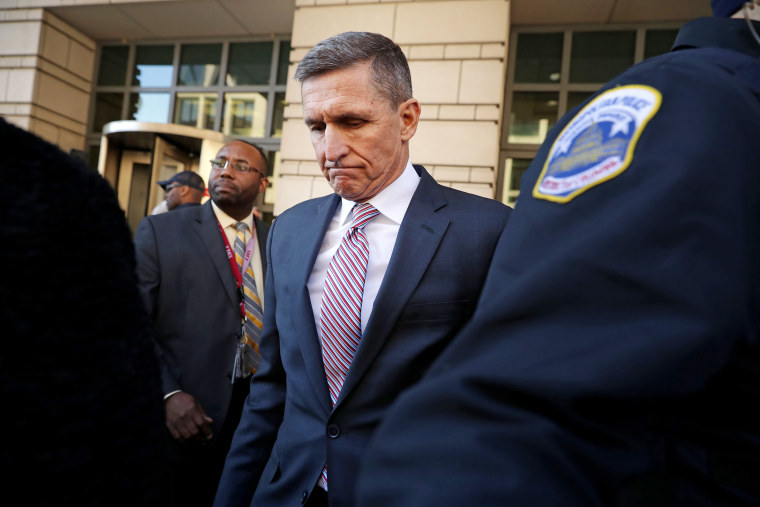WASHINGTON — The federal judge overseeing the prosecution of former Trump national security adviser Michael Flynn suggested during a hearing Tuesday that he is not yet prepared to let the government abandon the prosecution and still has more questions about the case.
U.S. District Judge Emmet Sullivan said courts have ruled that a trial judge's role "is not intended to serve merely as a rubber stamp" for a prosecution decision to drop a case.
Flynn's attorney Sidney Powell said she will formally ask Sullivan to take himself off the case, accusing him of "abject bias" against Flynn. In answer to questions from the judge, she also disclosed that she had discussed the case recently with President Donald Trump and White House lawyers.
"I provided the White House an update on the status of the litigation," she said. "And I asked that the president not issue a pardon."
Flynn pleaded guilty twice, during separate hearings, to charges that he lied to FBI agents in January 2017 about his conversations with Russia's ambassador to the United States in the weeks before Trump took office. But the Justice Department told Sullivan in May that it wanted to abandon the prosecution and let Flynn off the hook. Attorney General William Barr decided that Flynn's false statements to the FBI were not material to any open investigation and were therefore not a violation of the law.
Instead of simply granting the government's request, Sullivan appointed a former judge to argue that the charges should not be dismissed, so he could hear both sides of the issue. He scheduled Tuesday's hearing to help him decide whether dropping the case would be in the public interest.
Flynn's attorneys tried to block the hearing, arguing that prosecutors have complete discretion about whether to bring charges or to drop them. They asked a federal appeals court to direct the judge to grant the government's motion to drop the case. But the appeals court ruled in August that the proper time for that kind of request would be if and when Sullivan denies the motion and proceeds to schedule a sentencing hearing.
During the last several months, internal Justice Department and FBI documents compiled during the FBI's investigation of Flynn have been made public and turned over to Flynn's attorneys by Jeffrey Jensen, a U.S. attorney in Missouri. Barr directed him to look into the FBI's investigation.
Among the documents was an interview with William Barnett, an FBI agent assigned to Robert Mueller's special counsel team who worked on the Flynn case. He said that the investigation was "unclear and disorganized" and that he did not think Flynn conspired with Russia.
Justice Department lawyer Kenneth Kohl said Barnett's impression was "that the Flynn case was being used to get Trump." Kohl said the government would have had a weak case against Flynn if it was forced to go to trial, because the two agents who interviewed him have been accused of political bias and misleading investigators.
"We became so convinced and troubled that evidence wasn't matching up with what was said in the statement of the offense," he said.
The motions by both the Justice Department and Flynn to drop the case were based in part on documents from one of those agents, Peter Strzok, whose attorney notified the court that some of the notes offered to the court as exhibits had been altered. Sullivan called that "very unsettling" and asked prosecutors to certify that all the documents in the case are authentic.
John Gleeson, the retired judge appointed by Sullivan, has said in previous court filings that the government's arguments for abandoning the prosecution were so weak that they appeared to be "based solely on the fact that Flynn is an ally of President Trump." On Tuesday, he said the reasons offered by prosecutors "are so patently pretextual that the government sees the need to keep coming up with more of them."
After hearing from the lawyers for more than four hours, Sullivan said he will "proceed with dispatch" to issue his ruling.


